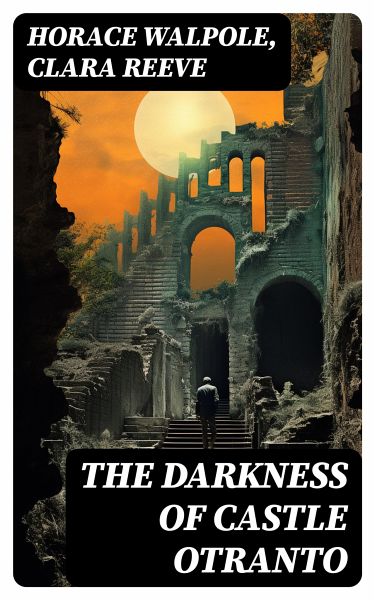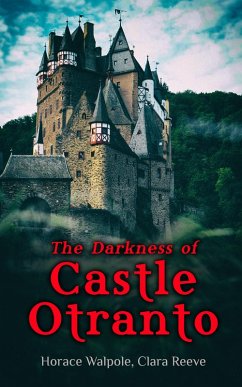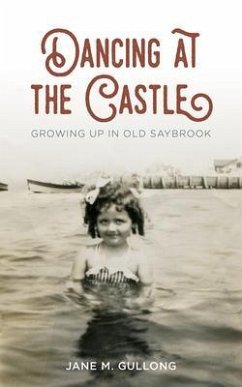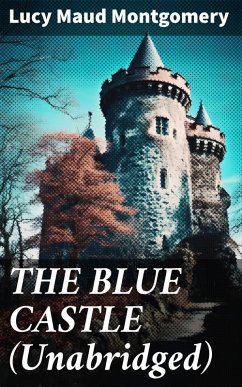
The Darkness of Castle Otranto (eBook, ePUB)
2 Novels: The Castle of Otranto & The Old English Baron

PAYBACK Punkte
0 °P sammeln!
The Darkness of Castle Otranto assembles a vivid tapestry of Gothic narratives, weaving together haunting specters and shadowed corridors to evoke chilling atmospheres and unsettling mysteries. The collection stands as a testament to the genre's ability to tap into the deepest fears and the sublime, balancing the romantic with the grotesque, the supernatural with the psychological. Through the diverse styles presented by its contributing authors, the anthology showcases a robust exploration of Gothic literature's dark allure and timeless intrigue, offering selections that range from spine-ting...
The Darkness of Castle Otranto assembles a vivid tapestry of Gothic narratives, weaving together haunting specters and shadowed corridors to evoke chilling atmospheres and unsettling mysteries. The collection stands as a testament to the genre's ability to tap into the deepest fears and the sublime, balancing the romantic with the grotesque, the supernatural with the psychological. Through the diverse styles presented by its contributing authors, the anthology showcases a robust exploration of Gothic literature's dark allure and timeless intrigue, offering selections that range from spine-tingling suspense to profound existential musings. Each tale invites the reader into a world where the past's eerie echoes inform present horrors, delivering a multifaceted engagement with themes of legacy, phantasmagoria, and sprawling ancestral homes. This anthology highlights the seminal contributions of Horace Walpole and Clara Reeve, renowned for their pioneering works in Gothic fiction and their influence on succeeding generations of writers. Their collaboration underlines the historical interplay between aristocratic nostalgia and societal unease, framing the early Gothic movement within its Enlightenment context. Together, these literary innovators exemplify the genre's oscillation between embracing enlightenment rationality and indulging the supernatural, contributing to a dialogue that reshapes cultural narratives through suspense and imaginative scope. The Darkness of Castle Otranto is an essential read for those eager to plunge into the multifaceted depths of Gothic literature. With its confluence of style and substance, the collection invites readers to experience the genre's breadth while appreciating each author's distinctive approach to timeless themes. Whether as a reflective examination of Gothic traditions or simply a delightful immersion into chilling tales, the anthology offers a rich, layered reading experience that promises both education and entertainment. Discover the shadows that lurk within these pages, and embark on a journey through the labyrinthine architecture of terror and allure.
Dieser Download kann aus rechtlichen Gründen nur mit Rechnungsadresse in A, B, BG, CY, CZ, D, DK, EW, E, FIN, F, GR, H, IRL, I, LT, L, LR, M, NL, PL, P, R, S, SLO, SK ausgeliefert werden.













